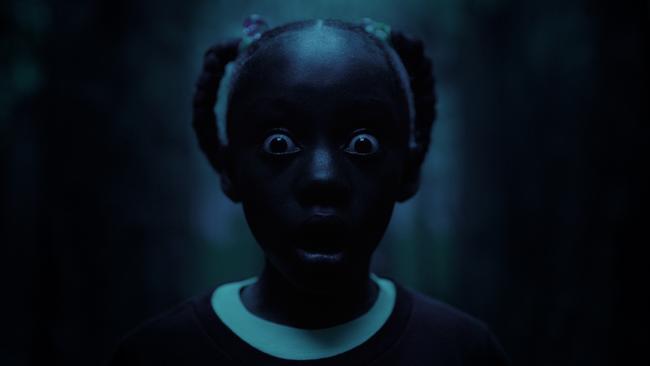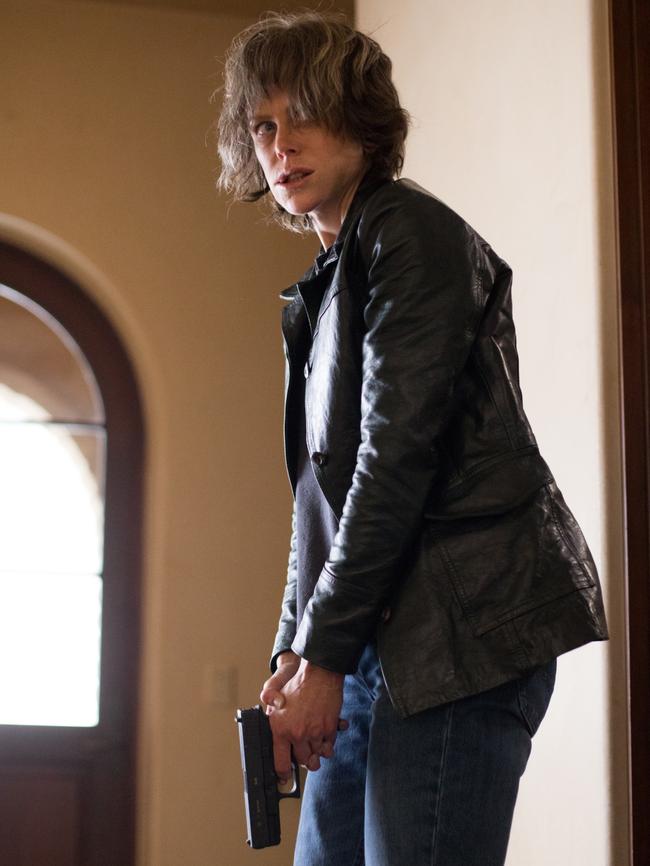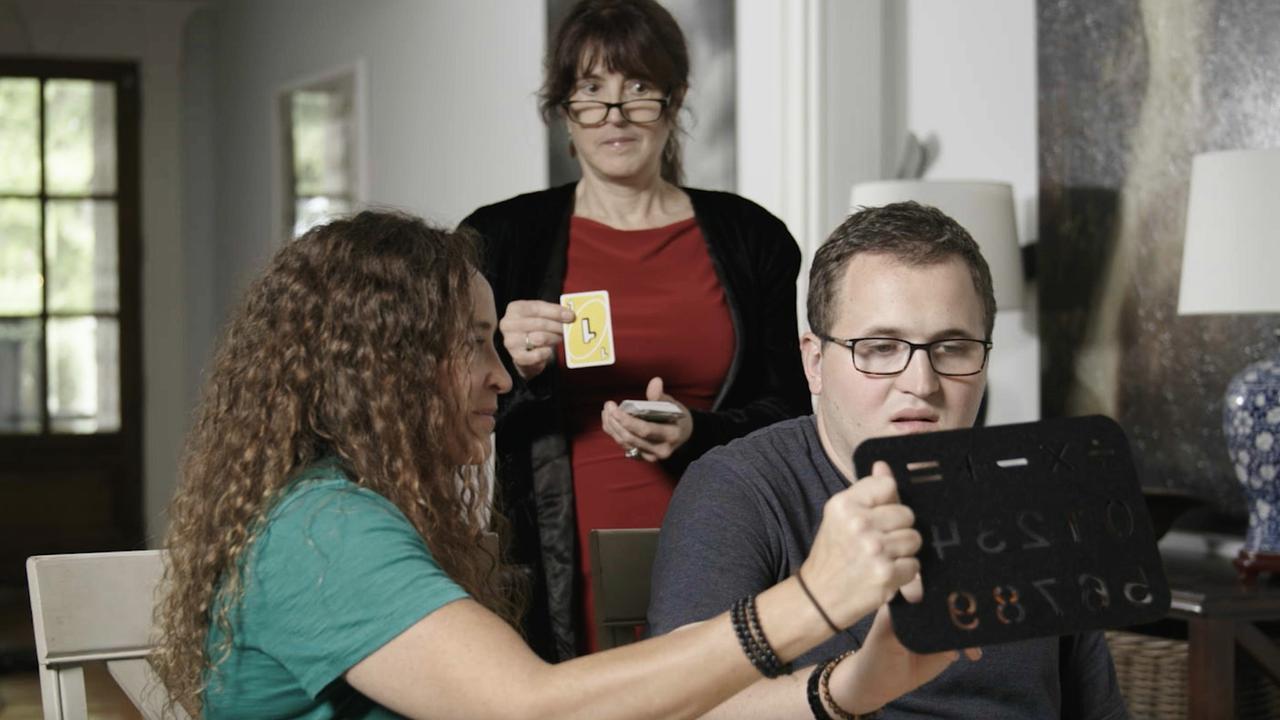Peele’s American horror story
Usconfirms Jordan Peele is an accomplished director with a wicked sense of humour.

African-American comedian turned film director Jordan Peele’s highly anticipated second feature, after the generally impressive Get Out,  is, for the most part, a suspenseful and frequently terrifying horror movie but, like its predecessor, it flounders when it attempts to explain too much in the later stages.
After an opening title that tells us that there are thousands of miles of abandoned tunnels under the continental US — old mineshafts, disused subways and the like — Usopens in 1986 (we see VHS tapes of movies such as The Right Stuff and The Goonies on a shelf beside an old-fashioned television, and an ad for Hands Across America is featured on the TV screen).
Young Adelaide (Madison Curry) is taken by her parents to the funfair at Santa Cruz beach, acquires a Michael Jackson Thriller T-shirt, and wanders off into a hall of distorting mirrors just as a storm breaks and the place is plunged into darkness. While trying to get out, Adelaide encounters her exact twin. This intriguing curtain-raiser promises a great deal, but Peele only partially delivers on the promise.
After a very strange credit sequence, set in a room filled with cages containing rabbits, we move to the present day. Adelaide (Lupita Nyong’o) is now happily married to the cheerful Gabe Wilson (Winston Duke) and the mother of two bright kids, teenage Zora (Shahadi Wright Joseph) and younger Jason (Evan Alex). It’s summer, and they arrive at the lakeside cabin they rent every year.
After some preliminaries in which we get to know a bit about the family members, they head to the Santa Cruz beach, though Adelaide does so with great reluctance, remembering her past experience there.
At the beach they meet up with their richer white friends, Kitty (Elisabeth Moss) and Josh (Tim Heidecker) and their teenage daughters. Adelaide observes a man she had seen 33 years earlier, still holding a cardboard sign with the words Jeremiah 11.11 written on it, being carted into an ambulance. The biblical reference, for anyone who cares to check it out, refers to a forthcoming disaster.
That night, at 11.11, a strange family arrives outside the house the Wilsons have rented. They are a man, a woman, a teenage daughter and a younger son, spitting images of the Wilsons. As if that isn’t creepy enough, it soon becomes clear that not only are the doppelgangers not going away — they are coming into the house, and they are each armed with long, sharp scissors. When asked “Who are you people?” the chilling reply is simply, “We’re Americans.” The source of terror is close to home.
At this point the horrors really kick in, and highly effective they are. A sequence in the home of Kitty and Josh, which is equipped with an automated system that provides the best AI jokes since HAL in 2001: A Space Odyssey, is bloody but masterfully handled. As with Get Out, Peele has created a wonderfully weird concept for a violent thriller, and the shocks come thick and fast, ensuring that the film will find its target audience. In the later stages, though, the film starts becoming a bit silly. And, even on its own terms, it doesn’t make a great deal of sense in the final analysis.
Nonetheless, even if his screenplay has flaws, Us confirms that Peele is an accomplished director with a wicked sense of humour. A lot can be read into the film about the role of the family — “us” — in Donald Trump’s America, and Peele is clearly as much a social commentator as he is a purveyor of nailbiting horror. If only he didn’t feel the need to explain what’s better left inexplicable.

Nicole Kidman has almost never played it safe. She has used her high-profile status as a “glamorous” actress to work with some of the cinema’s edgiest directors. Sometimes this courage has worked for her and sometimes it hasn’t, but you have to give her credit for seldom taking the easy route. Destroyeris the most extreme example of her willingness to immerse herself in a transformative role and she gives a remarkable performance in what is, unfortunately, a not so remarkable movie.
She plays Erin Bell, a Los Angeles cop. Her story is told in two timeframes, the present in which she’s an alcoholic, tired, burnt-out wreck dressed in shabby clothes and clearly despised and barely tolerated by her colleagues on the force. We also see her 17 years earlier, when she was ambitious, attractive and focused. What happened to change her so radically is the theme of Karyn Kusama’s narratively muddled thriller.
In the present, Erin attends a murder scene; the victim has been shot dead and close to the corpse are dollar notes stained with blue dye. To the other cops who really don’t want her around, Erin mutters that “Silas is back.” Silas (Toby Kebbell) was, we discover, the leader of a gang of bank robbers and 17 years earlier the younger Erin and her partner and lover Chris (Sebastian Stan) had been assigned to go undercover and infiltrate Silas’s group. Something clearly went badly wrong back then, and in the present Erin is determined to track Silas down. To do this she frequents some very mean streets and meets some very nasty characters, but she appears willing to do anything to find the elusive Silas. She also has personal problems, notably Shelby (Jade Pettyjohn), her neglected teenage daughter, who also is making some very bad decisions.
On paper this sounds like ripe material for a suspenseful thriller along the lines of Heat — but unfortunately Kusama, though she goes for “edgy”, is no Michael Mann and her regular screenwriters, Phil Hay and Matt Manfredi, have served up a narrative that is just a bit too tricky for its own good so that, in the end, you are likely to feel frustrated rather than elevated.
Yet the film has to be seen for Kidman. In the scenes set in the present she has so transformed herself that at first she’s hardly recognisable. It’s not just a case of skilled make-up; she inhabits this damaged, bitter, wasted woman in all kinds of physical and emotional ways. It’s an extraordinary performance.
British director Oliver Parker’s latest comedy, Swimming with Men, is a minor, perfectly pleasant, but unremarkable movie about male bonding. Eric (Rob Brydon) is an officer worker who’s become fed up with the everyday grind. His wife, Heather (Jane Horrocks), is more successful than he is — she recently has been elected to the local council and he suspects she may be having an affair. Unhappy and frustrated, he finds solace when he stumbles across a group of men of various ages and backgrounds who are involved in synchronised swimming at the local pool. Trained by the encouraging Susan (Charlotte Riley), the men eventually compete in a swimming event in Milan.
Harking back to British movies such as The Full Monty, this ensemble piece was inspired by real-life characters. The humour is low key and mostly based on painful minor embarrassments. It’s a film for blokes who seek a bit of undemanding light entertainment.
Us (MA 15+) 3.5 stars
Wide national release from Thursday
Destroyer (MA 15+) 3.5 stars
National release
Swimming with Men (M) 2.5 stars
Limited release



